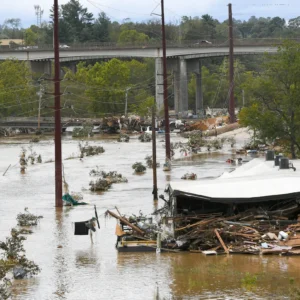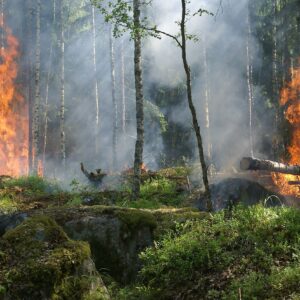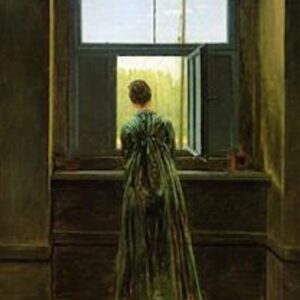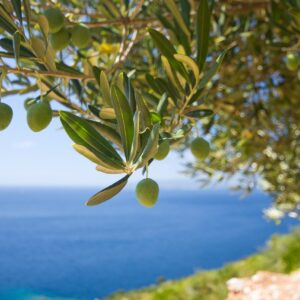We are packing up the kids, tents, various equipment for cutting things, catching things, starting fires, etc. and heading Up North. We may cross into the Upper Peninsula, but that remains to be seen. Don’t bother asking where precisely Up North is—that’s not something a non-native Michigander can say. At least, not until I’ve lived here a while longer. Then again, I’ve been visiting this state, usually camping and cycling in it, since 2005, when I moved to Chicago. I still don’t know exactly where Michigan’s Up North begins. All I know and am willing to say—Michiganders are secretive about their vacation spots, even those of us not born here—is we will be travelling sufficiently far in a northerly direction to enter the very heart of the country.
The question is what do I want to read on this trip. Nothing intellectual or speculative; nothing too lost in the permutations of the social world. Partly this is my current mood speaking, and partly it is the fact that my kids are too young: I’d be deluding myself if I thought I could hunker down with, say, the Peryphyseon as I once did on Beaver Island. The longest spans of totally uninterrupted time I’m going to have will come at dawn, and I plan on using these moments to do some tai chi. Since I’ll have a sandy beach to work with some of the time, I might try to revive my Classical Chinese while I’m at it…not that it ever amounted to much. I like the idea of writing lines from the Tao Te Ching for the water to wash away or others to find.
There are so many things I should be reading. But what do I want to read? It must be something best consumed in brief snippets. I may take a volume of R H Blyth’s haiku translations. But even that is too much in the way of commentary (brilliant though it is) when what I want is something pared down to essentials, something crystalline, elemental, vivid, this-worldly. The only narrative I’m interested in is that of travel in this world. A volume of Hakluyt would do, but my complete set is fragile so I’ll take this excellent selection. Hakluyt has the virtue of being maritime, and one thing we are not short on in Michigan is bodies of water.
The novel I’m working on has expanded—as my writing tends to do—to include other regions than its core region (southern Ohio). One of the two main exotic regions (exotic from the point of view of Southern Ohio) is Brittany, so I may take along a volume of the poet Guillevic—you can search for his poetry in translation from Black Widow Press here—who was, suitably for my journey, a poet of the littoral. Or then again there’s the Breton poet and traveler Victor Segalen, whose work (for example this or this) would tie in well with my much anticipated, long hoped for beach-at-dawn tai chi and calligraphy.
But the kids. What am I going to read to the kids around the campfire? There’s only one right choice. Anyway, a generation or two ago there would have been one obvious choice. I mean, of course, Longfellow’s epic poem The Song ofHiawatha. I love this poem, once the staple of schoolchildren. My father still can recite a few lines. I think he has some lines from Evangeline also. I teach that one and Hiawatha whenever I get the chance. Longfellow is one of those who was once renowned and is now rarely mentioned. He was a great poet of northern places, but for mysterious reasons I don’t think northernness is much prized among us.
Hiawatha is set in the same country where I’ll be. Not Up North exactly, for that refers to the Lower Peninsula of Michigan only. I mean a larger country of which Michigan’s Up North is a part. Bob Dylan called it the North Country in a song. I might call it the North Woods, to be more ecologically accurate. Conceived as forest, the region extends from northern Minnesota and Wisconsin across northern Michigan (including the Upper Peninsula); you pick it up again in the northern tier of New York State and on into northern New England. But my favorite term for this broad country I find so inspiring is Deep North.
I take this name from the common translation of seventeenth century Japanese poet Basho’s most famous haibun (mixed poetry and prose), the Oku no Hosomichi. Oku in this title is a place, a synecdoche for the far north of Honshu. The best version of this work for an English reader, as far as I have been able to determine, is in David Landis Barnhill’s superb collection of Basho’s haibun, Basho’s Journey. I have taught small excerpts from it in recent years, but I have not read it since about 2017, when I was beginning work on my novel Absolute Music, in which Basho’s journey into the north of his country plays a small but significant role.
Sometimes the title of Basho’s masterpiece is translated as Narrow Road to the Interior, with connotations of an introspective journey of consciousness. This is certainly a possibility when reading the book (and all of his haibun, which are likewise travel narratives). I tell students that there are two kinds of quest: the quest for and the journey (perhaps fleeing) away from. They often coincide. It is hard not to think of a journey into the Deep North—whichever Deep North it may be—as a quest of this dual nature. Whether we go with family or alone, we are trying to leave something behind—to return to it, perhaps—and trying to find something. Thus it may be an interior journey.
But like the neijia or internal martial arts I’m so fond of, there is in Basho a perfect blending of the physical and metaphysical. And this is the only way I can take metaphysics. The truth is, my feelings about books on this trip are really now my feelings about books all the time. You would think that the youth would be the one to insist that higher thought be embodied, but it hasn’t turned out that way for me. In my youth, I had an appetite for the explicit and the ratiocinative. Doctrines and ideas swayed me then, but their pull on me today is faint unless I find them in a story like Longfellow’s epic or Basho’s journeys.
And Hakluyt’s tales of seafaring? Are those interior journeys also, or merely the records of mercantile lust and the primordial human craving to test one’s mettle in the face of the world? But surely such are no less inward journeys. In any case, I have my books for the road, I think. Godspeed your own reading and journeys, in whatever directions they take you.
Jonathan Geltner lives in Ann Arbor, Michigan with his wife and two sons. His translation of Paul Claudel’s Five Great Odes is available from Angelico Press and a novel, Absolute Music, is available from Slant. If you enjoy his posts at Close Reading, check out his new Substack, Romance and Apocalypse, for more frequent and in-depth essays on the places where literature and other arts meet religious ideas and experience.





